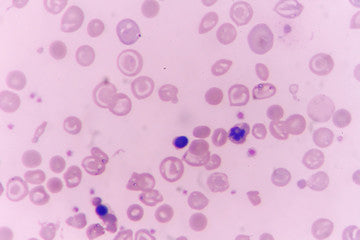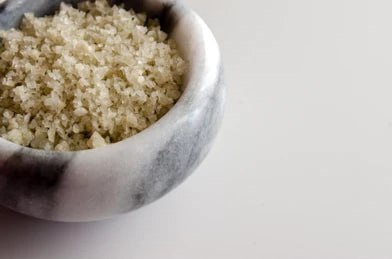7 Best Immunity Boosters for a Healthier Immune System

Related products
The immune system is the body's first line of defence against diseases and infections. In addition to protecting against harmful infections, maintaining a robust immune system also advances overall health. A balanced diet, adequate sleep, regular exercise, and effective stress management are all necessary to maintain this protective barrier.
Immunity levels are significantly impacted by lifestyle choices and dietary habits. Smoking and heavy alcohol consumption impair immunity, while nutrient-dense diets boost it.
In fact, a report from the Harvard School of Public Health demonstrates that deficiencies in specific minerals impair immunity, increasing susceptibility to diseases. Natural immune boosters, a class of foods rich in essential vitamins and minerals, improve resistance to illnesses like the common cold and the seasonal flu. Dr. James Steinberg, an expert in infectious diseases, states that "Natural substances can influence the innate strength our bodies possess for fending off microbes."
Vitamin D

The immune system depends on vitamin D, frequently referred to as the "sunshine vitamin," to function properly. Vitamin D has been linked to enhanced immunity, according to a study published inNIH. By encouraging T-cells, which are essential for preserving the body's best immune function, it aids in controlling the body's reaction to infections.
This essential ingredient is rare in foods, save for fatty fish like mackerel and salmon. Nonetheless, sunlight exposure promotes this component's natural synthesis. Another great source of this essential vitamin is dairy products that have been fortified. According to the National Institutes of Health, adults should take roughly 600 IU each day until they are 70 years old, at which point they should take 800 IU.
A Vitamin D Blood Test is used to measure the levels of Vitamin D in your blood. Insufficient levels of vitamin D might manifest as symptoms including:
- fatigue
- depression
- bone pain
- muscle weakness
- In children rickets—a disease characterised by impaired growth—is associated with inadequate Vitamin D
A Vitamin Deficiency Test is also availble for anyone who wants to find out if they are lacking in any essential vitamins. This test is especially helpful for people with a history of eating disorders since they could struggle to maintain a balanced diet, which could lead to deficiencies. Additionally, pregnant and lactating women have greater dietary requirements, therefore monitoring vitamin levels is essential to safeguarding both the mother's and the foetus's health.
Supplements serve as compensatory agents when meeting dietary recommendations proves challenging. However, they must be used under medical supervision due to the possibility of overdosing, which can result in symptoms including nausea, vomiting, increased thirst, and frequent urination.
Supplements of Vitamin D are available in many formats. Some of which include HealthAid Vitamin D3 Vegicaps Capsules, Vitamin D3 softgels - Protocol For Life Balance, and Lamberts Vitamin D (D3 form) Capsules.
Zinc

Zinc is a trace mineral that is essential for maintaining overall health and wellbeing. Although it also supports protein synthesis and cellular metabolism, its primary function is immune system strengthening.
Notably, zinc increases the activity of certain immune cells, including T lymphocytes and natural killer cells. These cell types function better when zinc levels are sufficient, but when they are insufficient, they lose their effectiveness and become more susceptible to illnesses like pneumonia, according to a study published in molecular medicine.
Zinc also lowers inflammation. A study from Oregon State University showed that consuming less zinc resulted in erratic inflammatory reactions, underscoring the need of this nutrient for robust immune function.
This vital component can be found in abundance in many foods: meats, especially red meat, and shellfish are prominent examples of animal-based diets, while seeds, nuts, and legumes are examples of plant-based diets.
The National Institutes of Health (NIH) recommends the following daily dosages for different age groups: Males aged 14 and above should take 11 mg daily, while girls in the same age range should take roughly 9 mg unless they are nursing (12 mg daily) or pregnant (11 mg daily).
Stunted growth, appetite loss, recurring infections, delayed sexual maturation, hair loss, and changes in taste and smell are some of the milder symptoms of zinc deficiency. Clinical testing is required for a clear diagnosis because these symptoms are not exclusive.
Reaching nutritional goals with diet alone can occasionally be challenging, even with an abundance of resources. These gaps are filled by supplements. Some of zinc supplements available include Zinc Plus - Klaire Labs (SFI Health), NOW Foods Zinc, and Optimal Zinc - Seeking Health.
Vitamin C

Vitamin C is an important component of human health and a critical immune system booster. Its antioxidant properties boost the immune system and reduce oxidative stress, which often results in chronic diseases, by combating free radicals.
According to research from the National Institutes of Health (NIH), vitamin C encourages the production of white blood cells, which are crucial for defending against infections and diseases. As a result, sufficient intake aids in bolstering the body's defences.
Manifestations of deficiency encompass:
- Fatigue
- Scurvy—a disease characterised by swollen gums
- Increased susceptibility towards illness due to lowered immunity
Top sources include:
- Citrus fruits such as oranges or grapefruits
- Bell peppers
- Kiwi fruit
- Broccoli
In addition to the natural food sources of vitamin C supplements are also available. These supplements are available in different forms like tablets, chewable and liquid. Some of vitamin C supplements available at welzo include Numark Vitamin C Effervescent, Numark Chewable Vitamin C, ChildLife Liquid Vitamin C, and BioTechUSA Vitamin C.
The NIH states that for women over the age of 18, the recommended daily amount (RDA) is 75 mg and for men it is 90 mg. Following these recommendations optimises physiological functions while avoiding adverse side effects.
It's important to keep in mind moderation while selecting the supplement strategy because consuming too much (>2000 mg/day) may produce digestive irritation, including nausea or stomach cramps.
Elderberry

Elderberries have long been utilised for their medicinal properties. These small purple berries from the Sambucus tree were used as medicine by the ancient Egyptians and Native Americans to treat a variety of ailments, including infections and burns.
Modern research backs up these age-old practices; a thorough investigation shows that elderberries have antiviral qualities, especially against influenza viruses. The "Journal of Functional Foods" published a study demonstrating that these berries contain compounds that stop the flu virus from spreading.
Elderberries that are sold commercially are easily incorporated into daily diet regimens because they are available in a range of forms, such as syrups, sweets, and teas.
It is crucial to use caution when consuming them, though, as its deadly ingredient, cyanide, may cause nausea or vomiting if consumed uncooked. Elderberries may have a stimulatory effect on uterine contractions, thus pregnant women should speak with their doctors before taking them.
Welzo offers a variety of elderberry supplements, including Swanson Elderberry, Humantra Elderberry, NOW Foods Elderberry, and Swanson Elderberry Extract Syrup.
Garlic

Numerous scientific investigations have shown that the ubiquitous culinary ingredient garlic acts as a natural antibacterial and immunological booster. Garlic is far more effective than some conventional antibiotics, according to a study.
Garlic's ability to strengthen immunity is mostly due to the component allicin. According to Molecular Immunology, salicin enhances human immunity by affecting specific white blood cell functions that are necessary for virus defence.
Consuming raw garlic often yields the most health benefits, though some people may find its pungent flavour difficult to handle. However, because they include minerals like vitamin C, boiled or crushed cloves still offer noticeable benefits against cold symptoms when added to salads.
Supplements with concentrated dosages are available (Swanson Garlic Oil Concentrate, HealthAid Garlic Max, Lamberts Garlic Tablets) for those who dislike taste but are interested in medical benefits; nevertheless, because of their different nutrient contents when compared to whole cloves, they must be selected under expert supervision.
Probiotics

A strong immune system and general well-being depend heavily on gut health. Numerous studies conducted recently have confirmed the critical role that probiotics, also known as helpful bacteria, play in handling this important task.
According to one such study from Gut Microbes, a healthy microbiome helps prevent disease and regulate the immune response—a balance that can only be achieved with the use of probiotics.
Foods like yoghurt, kefir, sauerkraut, and kimchi are rich sources of these "friendly" microorganisms. Each offers distinct advantages. According to a study published in NIH, fermented foods like kefir or kimchi have a variety of bacterial profiles that support metabolic processes and increase resistance to disease, while yoghurt contains Lactobacillus strains that are known to regulate immune responses related to infections.
Supplements can be used as a substitute for favoured foods when they are not practical. Among the probiotics offered by Welzo are D-Lactate Free Probiotics - Custom Probiotics - ICE, Allnutrition Probiotic, and Swanson Oral Probiotic Formula.
Turmeric

Turmeric, a bright yellow spice commonly used in Indian cookery, has numerous health benefits. Its primary active ingredient, curcumin, is well known for having potent antioxidant and anti-inflammatory properties that target inflammation at the molecular level and neutralise harmful free radicals.
Throughout the world, turmeric has been subtly added to dishes. It is even used in "Golden Milk," which has additional immune-boosting properties and improves digestion. For those who wish to boost their intake without going overboard with their diet, supplements containing concentrated doses of curcumin offer an alternative.
It is important to see a physician before beginning a supplement regimen, though, as dosage differs depending on individual needs. Novices can typically start with 500 mg daily under physician supervision.
Available supplements at welzo include Lamberts Turmeric Fast Release Tablets, Swanson Turmeric, Ashwagandha & Ginseng Complex, and Glucosamine MSM with Ginger & Turmeric - Pure Encapsulation.
Bottom Line
Maintaining a healthy lifestyle, which includes regular exercise, good habits, and proper diet, significantly boosts the body's immune system. In addition to the critical roles that meals rich in essential nutrients play, using natural supplements boosts immunity even further.
Notable boosters include the vitamin C in citrus fruits, the probiotics in yoghurt, and the antiviral properties of elderberries. Garlic has allicin, which fights infections, while turmeric contains curcumin, which lowers inflammation.
These natural supplements increase immunity when added to regular diets, but they cannot take the place of a balanced diet and an active lifestyle.
Frequently Asked Questions
What is the strongest immune system booster?
Finding the "strongest" immune system booster is difficult because the immune system needs a multitude of nutrients to perform at its peak. However, vitamin C is often praised as one of the most crucial immunological needs due to its strong antioxidant qualities.
What is the best thing to boost the immune system?
Living a healthy lifestyle in general, as opposed to depending solely on a few essential elements, is the best method to boost immunity. Eating meals that are well-balanced and rich in a variety of nutrient-dense foods, such as fruits, vegetables, and whole grains, is part of this. proteins that are lean. Get enough sleep, exercise frequently, drink a lot of water, and take proactive steps to manage your physical and mental well-being.
How can I boost my immune system in 7 days?
To guarantee a variety of essential vitamins and minerals, start by increasing your intake of fresh produce, with a focus on leafy greens and colourful fruits. Try to get eight hours of good sleep every night and at least 30 minutes of aerobic exercise each day. Don't forget to limit sugary drinks and drink lots of water. substituting herbal teas for water For those who want a more flavourful beverage, fruit-infused waters are a fantastic choice.











 Rated Excellent by 26,523+ Reviews
Rated Excellent by 26,523+ Reviews